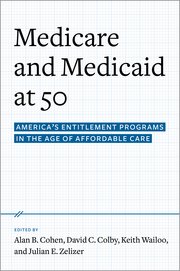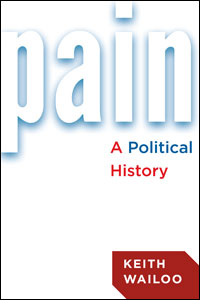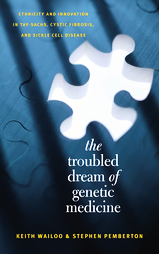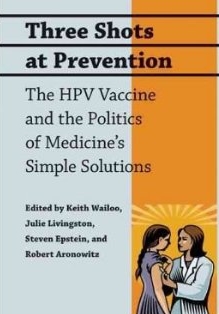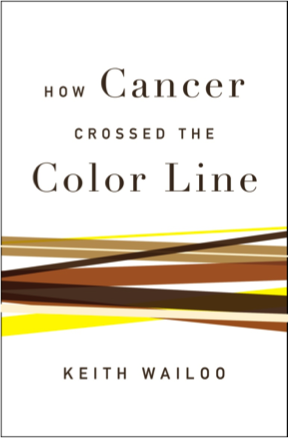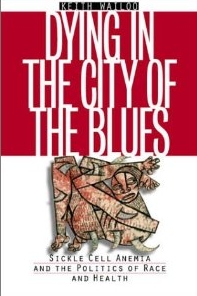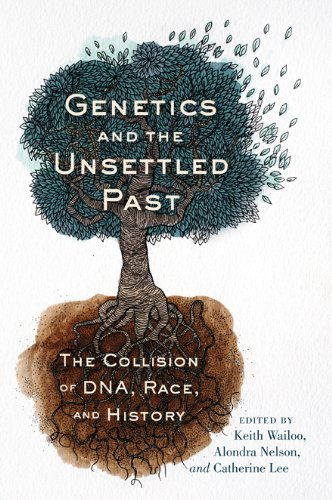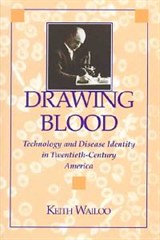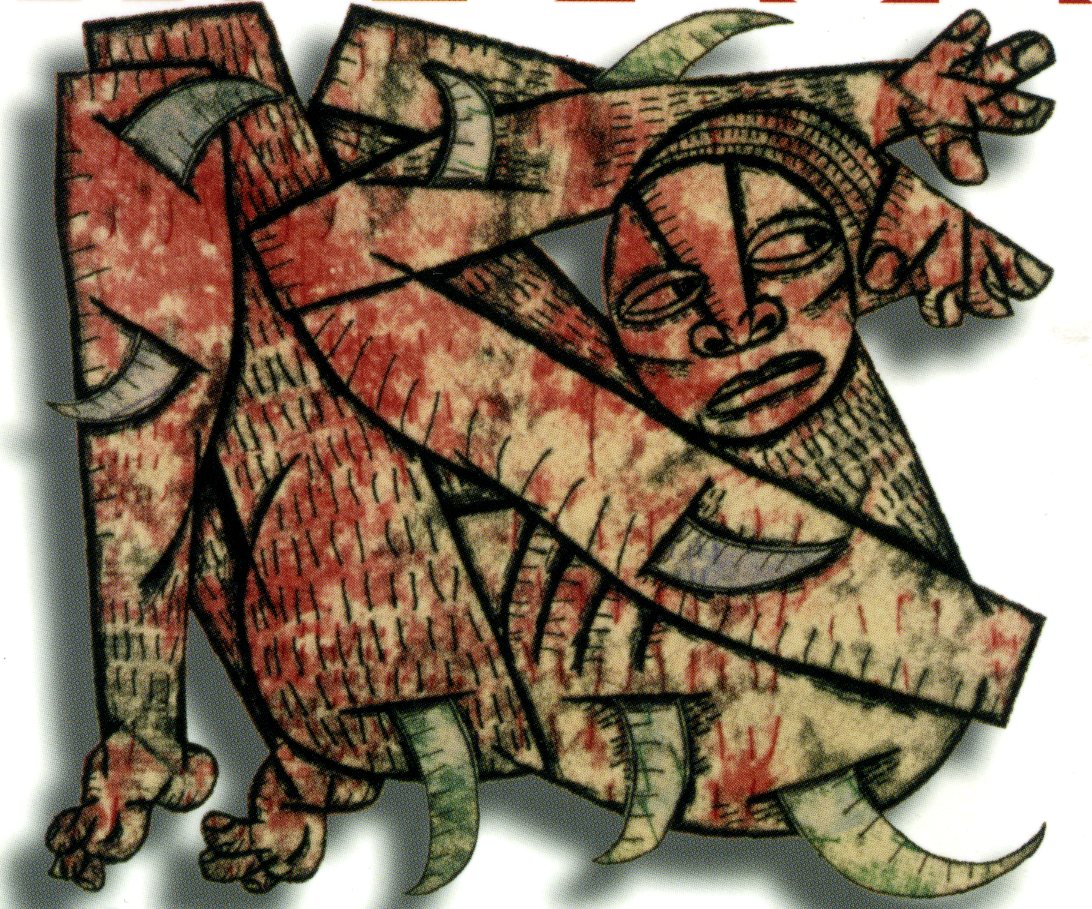On the cultural politics of disease, medicine and health in America
"THE ERA OF BIG GOVERNMENT: WHY IT NEVER ENDED" (chapter 12 -- Medicare and Medicaid at 50: America's Entitlement Programs in the Age of Affordable Care): "Facing the Republican takeover of Congress in January 1995, President Bill Clinton conceded that 'the era of big government is over." With the defeat of his ambitious national health insurance plan a few months earlier and the subsequent Republican takeover of Congress, Clinton's declaration seemed to draw the curtain on 30 years of federal activism in health reform. The mid-1990s promised to bring a dire thirtieth anniversary for Medicare and Medicaid. Yet, within a year, the Republican-controlled Congress itself was embracing healthcare reform and expansion. By 1997, it had passed (and Clinton had signed) a new Children's Health Insurance program. Six years later, in 2003, Clinton's successor, Republican George W. Bush, would be the architect of another expansion -- a new prescription drug benefit for Medicare recipients. And then Bush's successor, Democrat Barack Obama, would continue the trend by using Democratic control of both houses of Congress in 2010 to push through the Affordable Care Act (ACA) by the thinnest of margins. In truth, then, 20 years of big government activism followed Clinton's concession. It was also the case that both parties, often regardless of ideology, have embraced expansion and so-called bigger government... Medicare and Medicaid have expanded despite enduring anti-government rhetoric and serious threats of retrenchment over the past five decades, and particularly since the rise of the political Right... Even Ronald Reagan -- who famously announced in his 1981 inaugural address, 'in the present crisis, government is not the solution to our problems, government IS the problem' -- would oversee growth in both programs... To understand the apparent paradox, we must distinguish between political rhetoric, on one hand, and the pragmatics of governance, on the other... The surprising durability of these programs under both Democratic and Republican stewardship speaks to a complex relationship between Americans of all political persuasions and their big government..." READ MORE.
"THE DOUBLE FACED PAIN PROBLEM," HEALTH AFFAIRS (JULY 2014): "Reading Janice Lynch Schuster’s tormented account of her persistent pain and her journey through the medical maze of care in the July issue of Health Affairs, I’m reminded of how millions of Americans are living with not one, but two, pain challenges. The first is the epidemic of over-prescription; the second is the condition of endemic under-medication.... READ MORE"
Pain: A Political History
The Conservative Case against Learned Helplessness: "Barely two months after Ronald Reagan's presidential inauguration in January 1981, his secretary for Health and Human Services, Richard Schweiker, began purging the Social Security disability rolls of people claiming pain as their disability... The idea that many people feigned pain loomed large in conservative critiques and politics, becoming a major theme during Reagan's first term... Launching a stinging and dismissive critique of the liberal pain standard, Reagan's mantra was simple: he was attempting to correct the course of the nation with a conservative formula for judging people's pain." 99-100.
"The caption beneath the image stated, 'Before you can get past the agony, you have to get a doctor to believe it's real.'" Cover image.
Race Pathologies, Apparent and Unseen. "How is it that a disease that today is widely noted for its distinctive, recurrent, and singularly painful episodes could have been so obscure in early-twentieth-century America? The obscurity of sickle cell disease -- a disorder characterized by lethargy, repeated infections, frequent joint and abdominal pains, and high childhood mortality -- was due to many factors. One factor... was that local health care systems allowed for the visibility of some disorders an not of others, giving selective meaning to African American pain, distress, and disease." 55.
Three Shots at Prevention: The HPV Vaccine and the Politics of Medicine's Simple Solutions
Vaccination as Governance: HPV Skepticism in the United States and Africa, and the North-South Divide. "It is not surprising that across the globe, wherever the prospect of human papillomavirus vaccination has been raised as a possibility, it has brought to the surface nascent debates about governance and control -- about the troublesome relationship between government, big capital, adolescent girls, and the family, and about issues of sexuality and social control..." 231
Mystery in Marin: Cancer as a Burden of Affluence. "From the outset, the findings were personalized and politicized. The challenge of breast cancer in Marin [County, California] became inextricably bound up with questions of identity, how these women lived, the air they breathed, what foods they ate, how many children they had, their socioeconomic status, how nearby and distant industries influenced their lives, and many other factors. Marin County women suspected their environment was to blame." 167.
Ethnic Transformations: The Asian Paradox and Cervical Cancer. "Like beliefs about prostate cancer and black men, portraits of cancer in Vietnamese people proved to be malleable -- evolving remarkably in the 1970s, 80s, and 90s -- in this case not with diagnostic technology but with each immigration wave. During the first phase, researchers often connected higher cancer rates in Vietnamese populations (as well as in American Vietnam veterans) to exposure to dioxin during the war... According to another emerging theory, it was not life in Asia but the adoption of American ways of life that produced puzzling spikes in Asian-American cancer rates." 164.
George Minot, Harvard Professor and recipient of the 1926 Nobel Prize for the 'conquest of pernicious anemia'
Chlorosis and the Moral Management of American Girls: "What are we to make of a disease that occupied a central place in medical thinking for many decades and then disappeared in the early twentieth century?
Chlorosis was such a disease. The chlorotic girl was all too familiar to the family doctor of the 1890s. Her poor appetite... and faint green pallor could be noted by close friends, family, and eventually by the family physician. An intense lethargy often left her unable to do household chores or perform any physical labor... For novelists like Henry James and W. Somerset Maugham writing in the early 1900s, the chlorotic girl was a pathetic enigmatic figure... By 1920, however, the chlorotic girl had disappeared." 17.
The Conquest of Pernicious Anemia: "'The saga of pernicious anemia,' wrote one recent medical observer, 'remains one of the most compelling accounts of man's conquest and understanding of disease.'
Contemporaries regarded the discovery of a cure by two Harvard researchers as an 'epoch-making' event for medicine and hematology, surpassing in importance the discovery of insulin." Drawing Blood, 99.
"The mention of Hurricane Katrina conjures up more than just a violent storm that unleashed nature's destructive force on an American city. Hurrican Katrina is now also recalled as a political event that issued a black mark on a presidency, an epic media story that produced collective trauma far beyond those physically affected, a breakdown of social order that shredded the American social fabric... and an economic calamity that has produced one of the most dramatic urban transformations in American history." 1
A Slow, Toxic Decline: "Hurricane Katrina made private illness experiences and health vulnerabilities shockingly public, and nothing more graphically captures this fact than the drama surrounding dialysis patients in the days after the storm... a metaphor for the tragic moment... and a metaphor for the nation's unfulfilled political and economic commitments." 34.
"To invoke Katrina... is to continue a debate that started with the storm: about the role of government and the private sector, about the role of race in structured vulnerability, and about the problem of recovery, relocation, and the challenge of starting over." 3
Eradicating 'Jewish Genes': Promises and Pitfalls in the Fight against Tay-Sachs Disease. "The Dor Yeshorim model for conducting Tay-Sachs Disease carrier testing among young Jewish people and encouraging them not to marry one another was created in New York City in the 1980s by Rabbi Josef Ekstein and then spread through other Orthodox Jewish communities. Considered a success by geneticists and community people alike, the practice generated controversy in the early 1990s when Ekstein decided to extend testing to several other, not invariably fatal, supposedly Jewish genetic diseases like cystic fibrosis and Gaucher's disease."
Risky Business in White America: Gene Therapy and other Ventures in the Treatment of Cystic Fibrosis. "Enthusiasm for gene therapy in Cystic Fibrosis patients ran high in the 1990s, even though it was clear that gene therapy would not relieve all the symptoms of the disease. But the grand hope of a cure began to falter in the late 1990s, when gene therapy experiments produced severe side effects in subjects. And the venture suffered a devastating setback when Jesse Gelsinger -- a young man with another disorder, OTC deficiency -- died during a gene therapy experiment." 94.
Who Am I? Genes and the Problem of Historical Identity. "A fundamental conundrum at the heart of the new genetics is the question 'Who am I?' Despite what we may believe about ourselves -- based on our family lore, our photographs, our documented past, or the recollections and memorabilia of our ancestors -- genetics makes possible bold claims about self and family that may be at odds with these long-relied-upon artifacts of identity." 13
Genetics Claims and Credibility. "We live in an age when science and business compete for our attention -- telling us in the media, in courtrooms, in clinical settings, and in political contexts that they possess the secret to our identities.... What degree of authority should be grant to the claims that geneticists have unlocked the past and uncovered the truth about racial or ethnic or national character? Does the evidence support the sweeping claims...?" 325.
